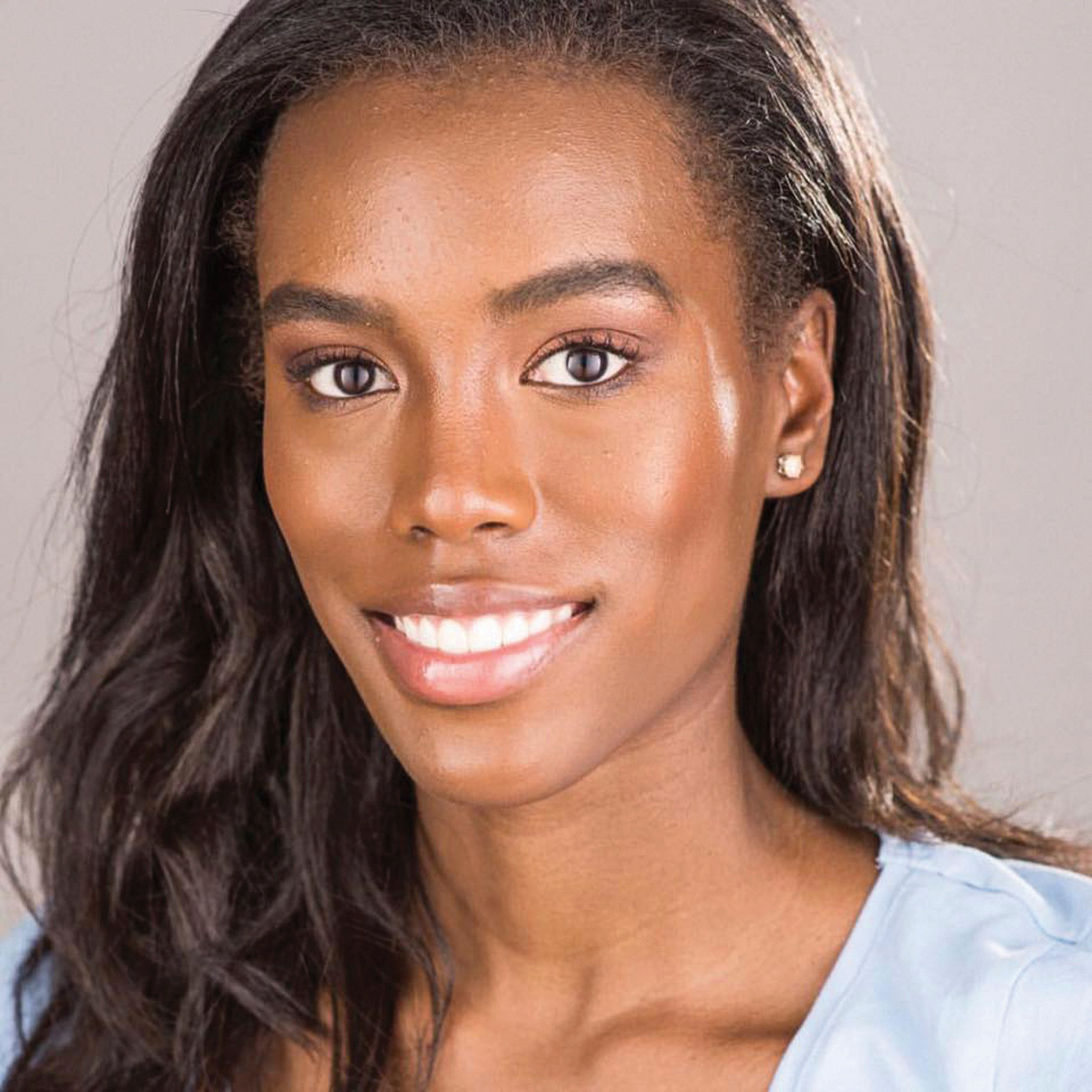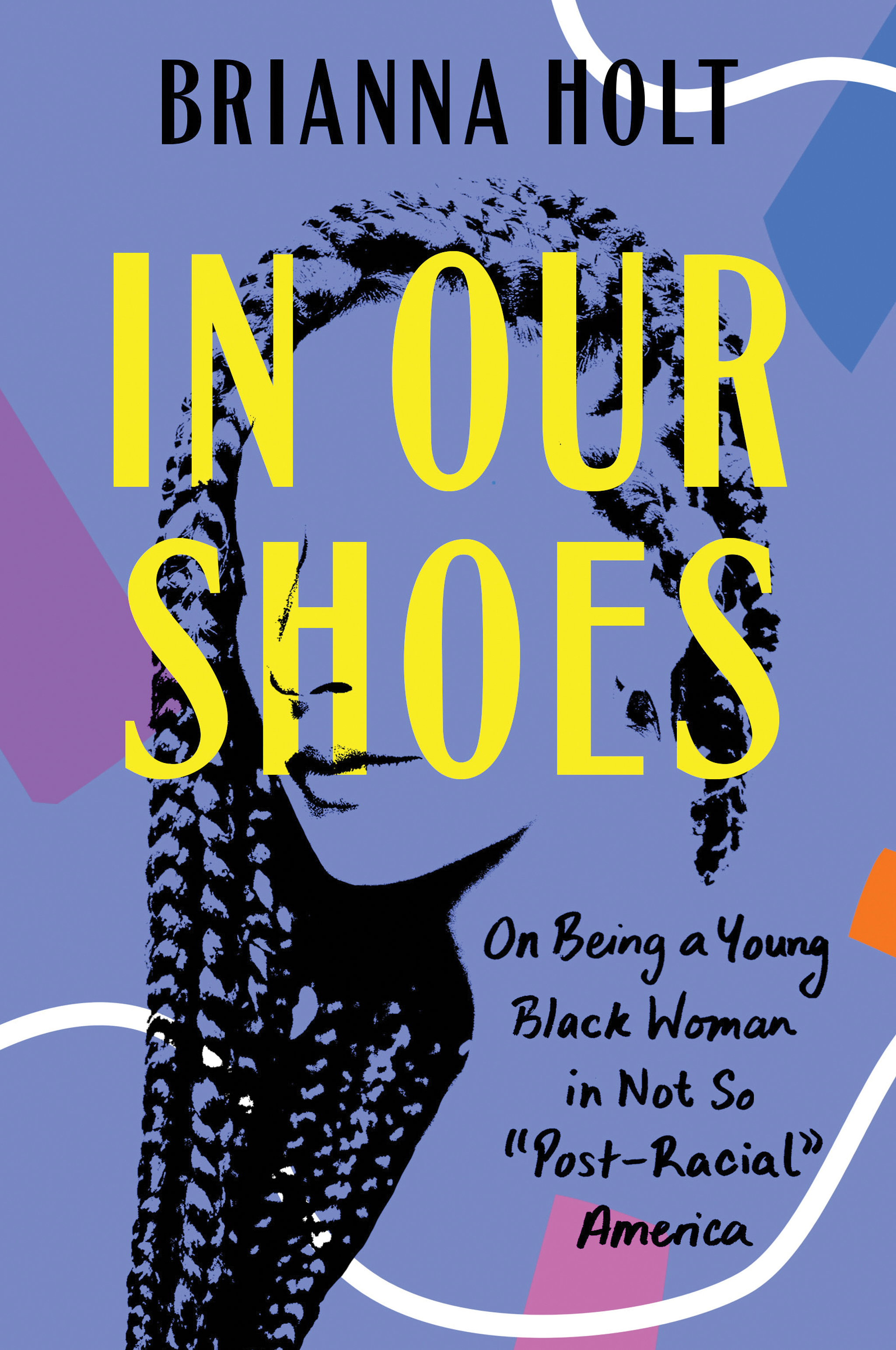Good Reads Q&A: Firsthand Experience

Brianna Holt never thought her first book would be a memoir, and especially not at only 25 years old.
But after the summer of 2020, when Holt, BJ, BS ’16, a screenwriter, author, and now a senior reporter at Business Insider, put out article after article about race and Black identity—including one viral New York Times article about celebrating Juneteenth in Grand Prairie, Texas—she realized it was her chance to dive deeper.
Nearly two years later, In Our Shoes: On Being a Young Black Woman in Not-So “Post-Racial” America, is set to publish this April from Penguin Random House. Part memoir, part cultural critique, In Our Shoes is a series of nine essays about the stereotypes and issues young Black women face, from colorism to racism in the workplace.
Holt shares her personal experiences—being bullied for her dark skin color, participating in a Black beauty pageant—alongside research and interviews with over 30 Black women. The Alcalde spoke with Holt about why it was so important for her to tell the stories of Black women, including her own.
How did the idea for the book come to you?
This idea really came together in the midst of the pandemic. I live in New York, but I had returned to Dallas, where I’m from, to stay with my mom during quarantine. I was writing a ton of articles during the summer that were based around race and Black identity. And I would read these articles out loud to my mom, and there were a lot of different things that I was talking about that were keywords, phrases that she wasn’t familiar with, whether it was like Blackfishing, or even cultural appropriation, because my mom, who is about to be 70, did not deal with or experience those things when she was a young Black woman. It made me realize that older generations may not understand what young Black women are upset about because it’s so different from their time.

What was it like for you to be so vulnerable in the book?
That was the least fun part of putting this book together, but at the same time, it was very therapeutic. I realized I had buried a lot of things from my childhood, whether consciously or unconsciously. Having to go back through my life and uproot these things and dig back up things that I had never spoken to my family about, things that I hadn’t spoken to a therapist about, things that I kind of just dismissed as normal behavior—it was very emotionally draining. And it caused me to have conversations with my mom and with my brother about things that in the past I did not feel confident enough to bring up to them.
Why did you decide to structure the book as a part memoir, part cultural critique?
I feel like when Black women try to just bring people into what their world is like, people will very often dismiss it, neglect it, or treat it like it’s untrue. My biggest fear writing a book is that people are going to be like, “Oh, she’s just complaining. They’re always angry. They always have something to be upset about. They always have something to complain about.” So, if I told other Black women’s stories and also [show] research to say that, “No, this is not just a complaint or me being annoyed, here’s a stat that shows that Black woman are most likely to die from pregnancy-related issues than any other woman in America,” … it can’t be dismissed.
How did your experience at UT shape your identity as a Black woman?
My experience at UT is that I really started to come into my own and start to love my Blackness for the first time in my life. That’s the first time I met Black women who really were just wearing their hair natural or going natural, transitioning their hair. A lot of us have had relaxers our whole life on our hair, and then you go to college and we all collectively agreed, “Okay, let’s stop getting it relaxed. Let’s go through this process together.” And that’s when I really started to understand sisterhood community, which is such a strong part of Black womanhood.
Were there any experiences or interviews that you left out?
There’s a chapter that I left out of the book. Originally, this was a 10-chapter book. Now, it’s nine. I left out the chapter on dating as a Black woman, which had a ton of interviews, and I ended up taking it out because I feel like that chapter was no longer becoming an essay. It didn’t fit within a collection of essays. It felt like it deserved its space for its own book.
What are you hoping people get out of reading your book?
I hope people will read this book with an open mind … and open heart. I have seen through my own personal experience, the experiences of my friends, and even just the way that Black woman are treated online, that Black women, when we advocate for ourselves, it is considered a threat for some reason to other people. People are turned off by it.
So, my biggest fear was writing a book where people are going read this and be like, “Here we go complaining,” but I think anyone who is intelligent enough to read a book that also includes stats and the voices of many people is intelligent enough to know it’s the truth, and that there is rightfulness to these complaints. I definitely am complaining. I definitely am angry, but there’s reason for that. And that’s listed all throughout the book.
This interview has been edited and condensed.
CREDIT: Courtesy Brianna Holt





